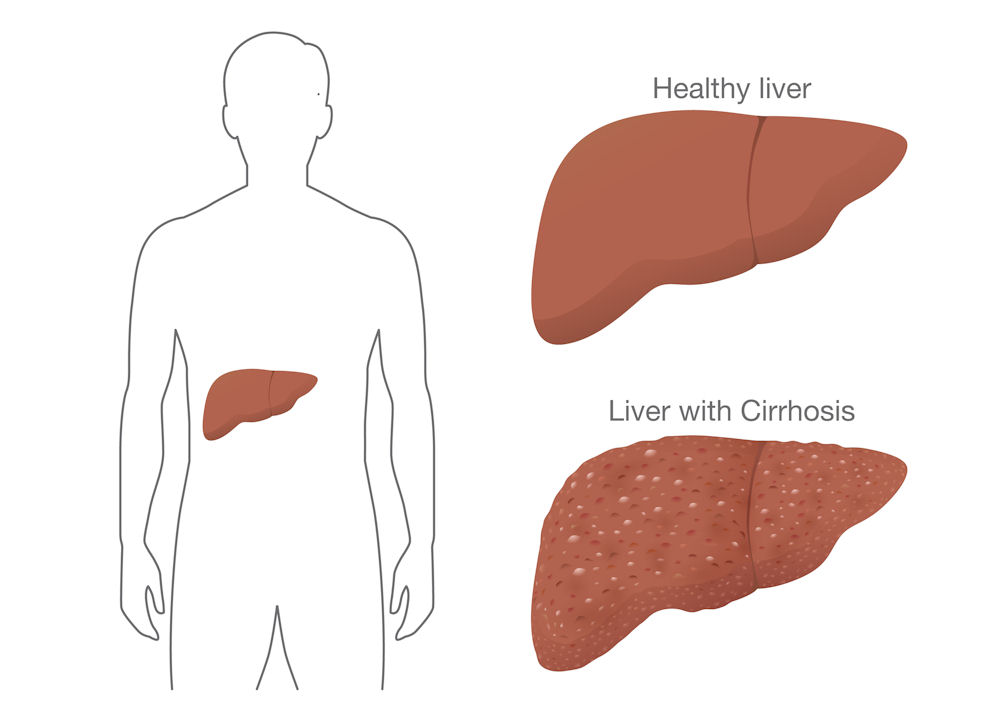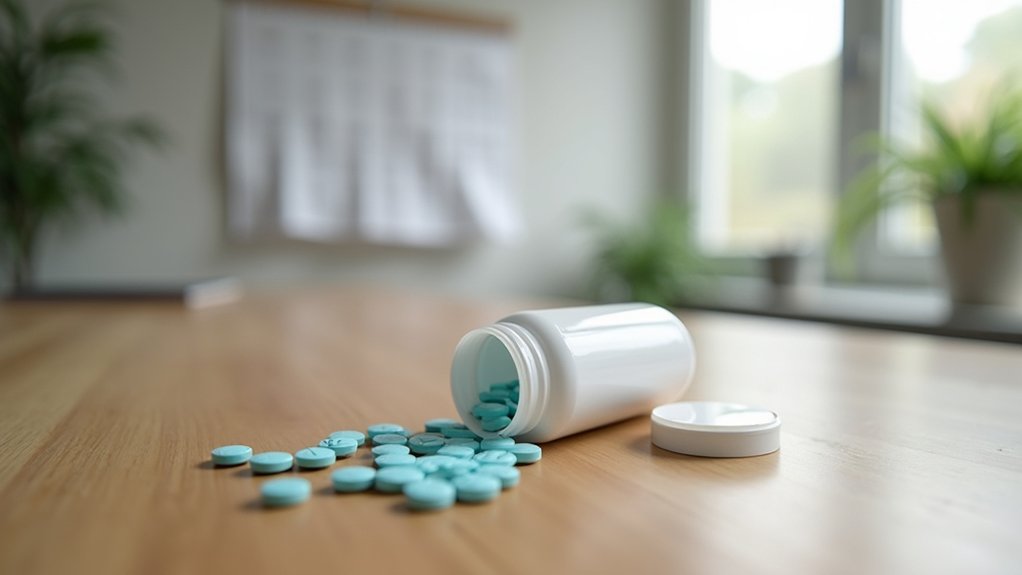Signs That Drinking is Affecting Your Liver
Alcohol is absorbed into the bloodstream and filtered through the liver, the body’s main detox organ. When alcohol is consumed in excess, it harms liver cells and causes inflammation. Common early warning signs include fatigue, bloating, loss of appetite, or mild abdominal discomfort.
As damage progresses, symptoms may escalate to jaundice (yellowing skin and eyes), dark urine, swelling, bruising easily, and even cognitive changes. If you’re noticing these signs, prompt attention is essential. At Immersive Recovery in Encinitas, California, we can help you heal your liver from alcohol abuse.
Understanding Liver Damage from Alcohol
Liver damage from alcohol occurs when excessive drinking overwhelms the liver’s ability to process toxins. Over time, alcohol can lead to inflammation, fat buildup, and scarring of liver tissue. This damage progresses through stages—starting with fatty liver, advancing to alcoholic hepatitis, and potentially leading to cirrhosis, which is irreversible. Symptoms may be mild at first, but can worsen without intervention. Understanding how alcohol impacts liver function is crucial for early detection and treatment. Learn more about the risks of alcohol addiction and our recovery process at Immersive Recovery.
The harm alcohol causes to the liver unfolds in stages:
- Fatty Liver (Steatosis): Liver cells build up fat due to frequent alcohol use, causing enlargement and inflammation.
- Alcoholic Hepatitis: Continued drinking leads to inflammation, pain, fever, and jaundice.
- Cirrhosis: Scar tissue replaces healthy liver tissue, impairing liver function and making damage irreversible.
On a cellular level, enzymes like alcohol dehydrogenase break down ethanol into acetaldehyde, a toxic compound. Repeated exposure damages cells, disrupts enzyme balance, and can cause permanent scarring. Understanding this process clarifies the importance of early signs and sustained recovery.
What Does the Liver Do in the Body?

The liver is one of the body’s most vital organs, responsible for over 500 essential functions. It filters toxins from the blood, metabolizes alcohol and medications, and produces bile to aid in digestion. The liver also stores important nutrients like vitamins and iron, regulates blood sugar levels, and helps with blood clotting. Additionally, it supports the immune system by removing harmful bacteria from the bloodstream. Because of its central role in maintaining overall health, liver damage can impact many other systems. Protecting liver health is key, especially for those recovering from alcohol misuse.
Your liver is essential for:
- Detoxifying alcohol, medications, and chemicals
- Producing bile to digest fats
- Regulating blood sugar and cholesterol
- Storing vitamins, iron, and glycogen
- Filtering bacteria and toxins from the bloodstream
- Making proteins for blood clotting and immune function
This multitasking organ can sustain significant damage before symptoms appear, which is why recognizing early signals is key for long-term liver health.
How Does Alcohol Affect the Liver?
Alcohol has a direct and harmful effect on the liver, which is the primary organ responsible for metabolizing it. When consumed in excess, alcohol overwhelms the liver’s ability to process it safely, leading to fat accumulation, inflammation, and scarring. Over time, this can progress from fatty liver disease to alcoholic hepatitis and eventually cirrhosis, permanent liver damage. Alcohol also increases oxidative stress and impairs the liver’s ability to detoxify the body. These effects compromise essential liver functions and overall health.
What Does Excessive Alcohol Use Do to Liver Health?
Chronic alcohol use stresses the liver in several damaging ways:
Cellular inflammation
Leads to swelling, pain, and scarring.
Impaired metabolism
Affects enzymes vital to digestion and detox.
Oxidative stress
Increases harmful free radicals.
Fat accumulation
Promotes fatty liver disease.
Immune response
Prolonged inflammation can lead to liver cell death and tissue damage.
These effects combine to progress from steatosis to hepatitis, cirrhosis, and potentially liver cancer.
Signs That Your Liver Is Healing From Alcohol

When you stop drinking and begin taking care of your health, your liver has a remarkable ability to heal, especially in the early stages of damage. Signs of liver healing may include improved energy levels, better digestion, a return of appetite, and clearer skin. Blood tests may show lower liver enzyme levels, and symptoms like jaundice or abdominal discomfort may fade. Mental clarity and mood can also improve as liver function stabilizes. These positive changes indicate that the liver is beginning to recover.
If I Stop Drinking, Will My Liver Heal?
Yes—your liver can begin to heal once you stop drinking, especially in the early stages of damage. Fatty liver and mild hepatitis often reverse with abstinence. However, advanced conditions like cirrhosis may be permanent. Early treatment greatly improves the chances of recovery.
- Fatty liver: Fully reversible with weeks to months of abstinence.
- Alcoholic hepatitis: Improvement is possible over months with no alcohol and proper medical care.
- Cirrhosis: Irreversible scarring, though halting progression is achievable, and symptoms may improve.
Signs of liver healing include:
- Increased energy and appetite
- Improved digestion and stool color
- Fewer incidents of bruising or bleeding
- Reduced jaundice and swelling
- Improved mental clarity and mood
These are often observed within weeks of sobriety, and tracking through lab tests helps validate progress.
Healing Your Liver After Alcohol Abuse

Healing your liver after alcohol abuse starts with complete abstinence from alcohol. A nutrient-rich diet, regular hydration, and medical support are essential for restoring liver function. In the early stages, the liver can repair itself over weeks or months. More severe damage may require long-term care and lifestyle changes.
Monitoring through lab tests and physician guidance helps track progress. Immersive Recovery’s men’s rehab center in Encinitas, California, offers comprehensive care to promote liver healing and overall wellness.
- Complete abstinence from alcohol
- Balanced, nutrient-rich diet: leafy greens, cruciferous veggies, lean protein, healthy fats, and antioxidant-rich fruits
- Staying hydrated: Essential for toxin removal
- Regular medical checkups: Including liver enzyme and imaging tests
- Medications/supplements as advised: To reduce inflammation and support recovery
- Managing weight: Excess body weight exacerbates fatty liver conditions
Integrating these supports accelerates recovery and shields against future damage.
How Long Does It Take for Your Liver to Heal from Alcohol Abuse?
Liver healing time depends on the extent of damage. Fatty liver may improve within weeks of sobriety, while alcoholic hepatitis can take several months. Cirrhosis is permanent, but symptoms can be managed with treatment. Early intervention and consistent care greatly improve healing outcomes.
Healing time varies by stage:
- Fatty liver: Some recovery can be seen in 1–2 months.
- Alcoholic hepatitis: May take multiple months to over a year, depending on severity.
- Cirrhosis: Scarring is permanent, but halting further progression is critical. Some functions may partially restore over time.
According to Recovery Village, early-stage damage may heal with prompt abstinence and healthy habits, but over time, permanent scarring limits treatment response.
Treatment for Alcohol Addiction
Recovering from alcohol addiction, which is closely linked to liver health, starts with finding the right treatment program tailored to your needs. Effective treatment typically begins with medically supervised detox to safely manage withdrawal symptoms and clear toxins from the body. Following detox, therapy options such as individual counseling, group support, and behavioral therapies help address the psychological aspects of addiction. Comprehensive programs also focus on rebuilding physical health, including liver recovery. Long-term support through aftercare and relapse prevention is essential for lasting sobriety and liver healing.
Heal Your Liver at Immersive Recovery

Recognizing the signs of liver damage—fatigue, abdominal pain, lab abnormalities—is the first step toward healing. The liver’s remarkable ability to regenerate makes recovery possible, especially when you stop drinking early. Support through detox, rehab, diet, and long-term care is essential.
At Immersive Recovery, medical detox, individual and group therapy, holistic supports, and aftercare programs unite to treat addiction while nurturing liver health. Our serene coastal setting enhances emotional healing, while evidence-based addiction counseling services such as CBT, EMDR, and holistic therapy work together in a comprehensive system.
The dedicated team at Immersive Recovery includes medical professionals, licensed therapists, and caring support staff who work together to provide personalized, effective treatment for alcohol addiction and liver health. Our combined expertise creates a supportive Immersive Recovery that offers a holistic and integrative program tailored to alcohol use disorder and liver health:
- Outpatient treatment: Our men’s outpatient rehab program offers a supportive and structured environment where individuals can work on their recovery at their own pace, making it an ideal option for those with responsibilities such as work or school.
- Integrated Mental Health Treatment: Addresses co-occurring issues
- Aftercare program and continuing support: Alumni programs and relapse prevention expand long-term success
For help starting your journey, please contact our admissions team.





